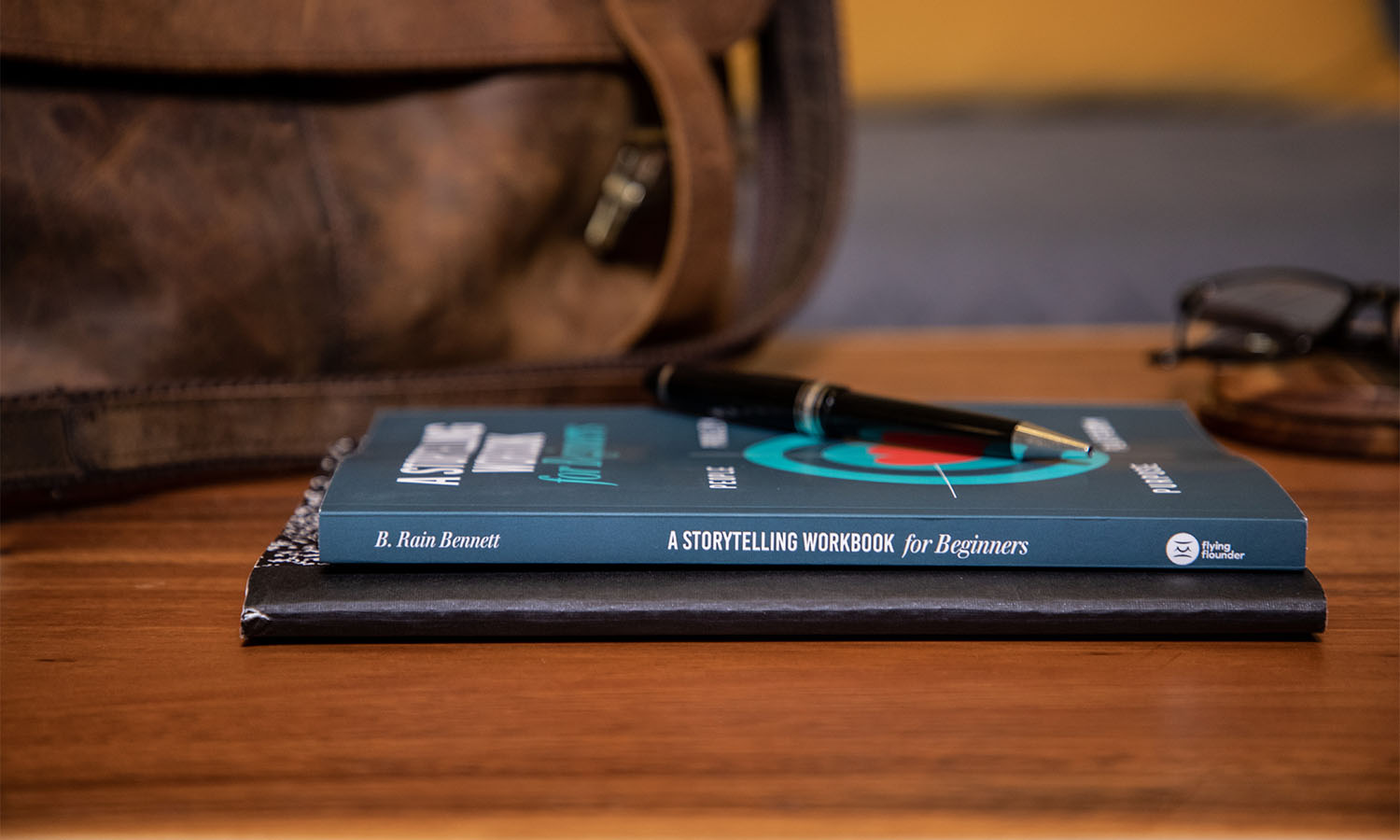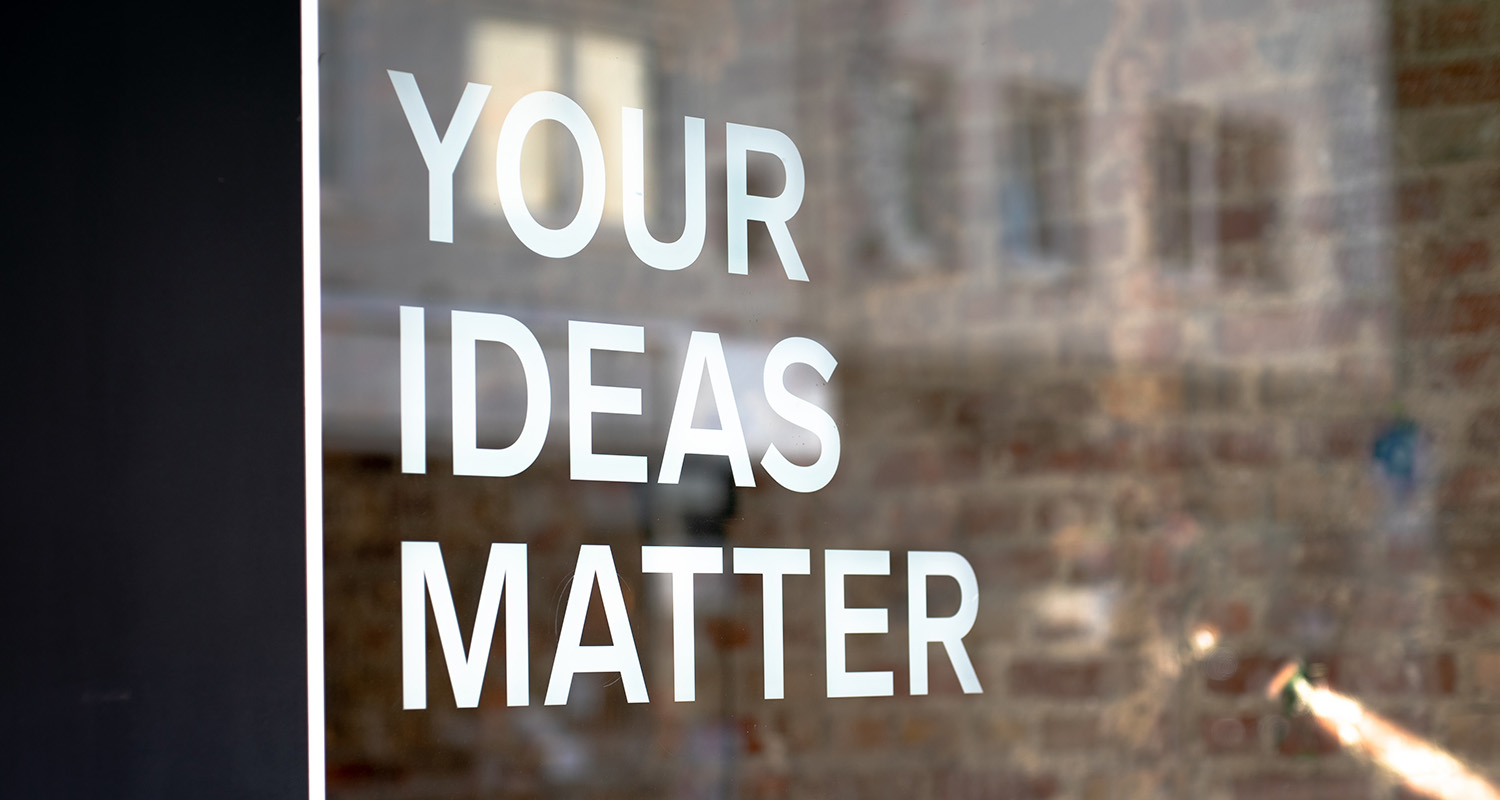To increase your customer conversion rates, you need to start telling your customers better stories.
All the top marketers agree... Advertising guru Seth Godin says:
"Marketing is no longer about the stuff you make, it's about the stories you tell."
"Nothing sticks in your head better than a story,"
echoes HubSpot boss Sam Balter.
"Stories express complex ideas in the most digestible way - in a way that we can't help but remember."
So how can you leverage storytelling in your content marketing campaigns?
Let's explore. And like every good story, we'll start at the very beginning...

Most marketing content presents messages, i.e., single, self-contained ideas that tell people something about a product or service.
Storytelling in content creation is similar but also very different. There's still a message (maybe even a moral). But with storytelling, you're conveying that message through a narrative, i.e. a story with a beginning, middle, and end. The story can take any form. It could be a blog post, a vlog, a customer testimonial, a podcast, an animated explainer video, a TV ad, or a TikTok/YouTube video.
Humans have been telling each other stories for 30,000 years, storytelling is how we understand (and even construct) the world around us.
We're constantly telling or listening to stories, even when we don't realise it.
Research suggests that personal stories (including gossip. Come on, we all do it!) account for 65% of our daily conversations. We even tell ourselves stories, albeit extraordinary ones, when we sleep. We just call them dreams.
Stories are hard-wired into our DNA, a central part of the human experience.
Stories make messages feel more authentic, genuine, and, in many cases, 'true.' They make our messages sound and feel more credible. And isn't that what every business wants?
But what makes a good story?
Every story can be boiled down to three fundamental elements: character, setting, and plot.
In other words, who is the story about, where does it take place, and, crucially, what happens in it? And something has to happen; this is what makes it a story.
That 'happening' could be overcoming a challenge, making a profound realisation, solving a problem or mystery, or simply gaining a new understanding.
Stories written for ads and content creation are no different - except for one crucial factor. We still want audiences to feel something, to connect emotionally with our story. But we want to create an emotional connection that compels audience members to take a specific action.
So our stories need to be entertaining and persuasive.
The best marketing stories, the ones that convert audience members into customers, have the following elements:
Pretty obvious, but well worth mentioning. Generally, audiences connect with stories with a central character they can relate to.
So spend plenty of time researching your ideal target persona, including their likes, dislikes, motivations, and aspirations. Then make them - and their common pain points - the subject of your stories.
Personalisation is a big focus for marketing now. And that's because customers crave a sense of authenticity. As such, real stories created by real people can be a hugely effective storytelling technique for driving leads and conversion rates.
Trulia, an online real estate marketplace, leverages the power of storytelling by asking its customers to produce blogs and vlogs detailing their journey (i.e. their story) of finding and moving into their dream home.
This is marketing storytelling at its best. It's real, authentic, always has a happy ending, which Trulia made happen, and inspires readers to start writing their own stories.
Humans are driven by emotion much more than we think - or like to admit. It's a fact of human nature.
So even if you're telling stories to high-level B2B leads or CEOs, you still need to capture their emotions before appealing to their reason. Stories without any real emotion are super dull. Without some emotional element, your story won't feel like a story. Instead, it will feel like a dry and very stale sales pitch. Audience members will feel unengaged and uninterested. And that's precisely what we don't want.
And we humans have plenty of emotions that you can appeal to, including

Google created a video series called "AdWords Stories" documenting how small businesses have used the platform to grow and thrive. In one two-minute video, a business owner tells his story of growing a single bakery into a $14-million national mail-order business - and all with the help of Google Ads, of course.
Salesforce specialises in a very particular kind of brand storytelling. The popular sales technology company has customers tell their stories via its Success Stories page. It's a series of blogs and interviews with clients that have used Salesforce to grow their business.
It's a format that any business can replicate for a low cost. And it has everything you could want from a storytelling content campaign: it's real, authentic, value-driven, and uses the power of storytelling to establish brand credibility.
Your brand can be your story. In fact, every successful brand has a story.
A brand story is a narrative of how and why your brand does what it does, it defines the context for every customer interaction, making them feel part of the story too.
Think about ethical branding. The outdoor clothing retailer Patagonia has this brand mission statement: "Build the best product, cause no unnecessary harm, use business to inspire and implement solutions to the environmental crisis".
It tells a story that goes something like this: unscrupulous business practices are putting the world at risk. We need a better way of doing business to make a better world. And that's why we do business the way we do it.
From this perspective, the people who work and shop at Patagonia are not just customers or employees. Instead, they're playing an active role in a much bigger narrative - one that appeals to their sense of hope, idealism, optimism, and sense of belonging.

We are a B2B copywriting and content marketing agency based in Manchester. Our technologists, business leaders, and copywriters have experience in various technology industries — from early-stage startups to scale-ups and Fortune 500 companies. Whether you're a startup or a global brand, our international experts will give your content the edge, enabling you to open conversations, build relationships, & drive customer loyalty.
We create content that illustrates precisely what you do and why you do it better than anyone else. It's simple. More clicks, more leads, and more sales.
Book your free discovery call today.